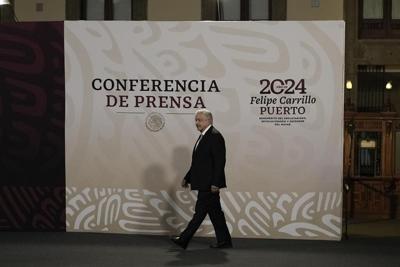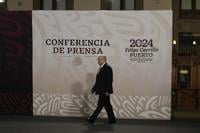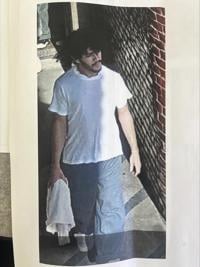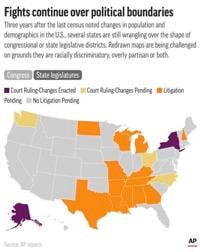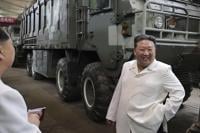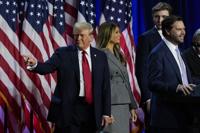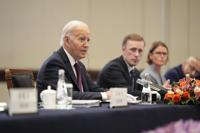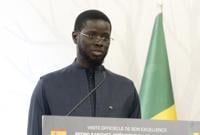MEXICO CITY (AP) — There were plenty of reasons to criticize Mexico’s first presidential debate leading up to the June 2 election. The format was a bit constrictive, and the candidates’ timer wasn’t working at some points, leaving it unclear how much longer they could speak.
But President Andrés Manuel López Obrador said on Tuesday he had a novel reason for disliking Sunday’s debate: It wasn’t about him.
Focused on his legacy, López Obrador has to the most heroic chapters of Mexican history. He expressed anger the debate moderators posed questions about corruption and problems with the education and health care systems. Those are issues .
“The whole narrative of the debate, if you analyze it, revolved around what our opponents say,” López Obrador said at his daily news briefing. “The whole narrative of the debate was to not recognize anything” done under his administration, “as if we had not focused on completely banishing corruption.”
López Obrador has acknowledged that corruption cases continued to occur after he took office in December 2018.
The debate questions weren't written by the moderators. They were chosen from among those submitted by citizens, and each candidate could chose among groups of questions.
The Constitution limits presidents to one six-year term, so López Obrador cannot run again.
Newspaper columnist Salvador García Soto cited anonymous administration sources as saying that López Obrador also was angry with his party's candidate because she did not defend him enough.
Former Mexico City mayor Claudia Sheinbaum is running on the ticket of the president's Morena party. Sheinbaum is seen as López Obrador's most loyal disciple and leads the polls in the presidential race.
But when asked how she would handle corruption, she apparently angered the president by referring to her own anti-graft programs in Mexico City, not Lopez Obrador's efforts.
“The president felt offended because Claudia wasn't vehement enough in defending the federal government,” García Soto wrote.
López Obrador calls his administration “the Fourth Transformation,” claiming it is the successor to the three most heroic chapters of Mexican history: the 1810-1821 fight for independence from Spain, the liberal reforms that broke the church’s dominance in the 1850s, and the 1910-1917 Mexican Revolution.
Sunday's debate was marked by repeated attacks on , criticisms that Sheinbaum barely deigned to acknowledge. With a comfortable lead in the polls, Sheinbaum focused on the government's highly popular aid programs and her record as Mexico City mayor.
On Monday, Sheinbaum and Gálvez hit the campaign trail by visiting universities in Mexico City, but they did it in very different ways that reflect the styles of their campaigns.
Gálvez visited a private university and took questions from students and listened to protesters' complaints.
Sheinbaum attended a carefully orchestrated rally at Mexico's ���ϳԹ��� Polytechnical Institute. She didn't take questions and received rounds of applause from a crowd almost entirely made up of her supporters.

